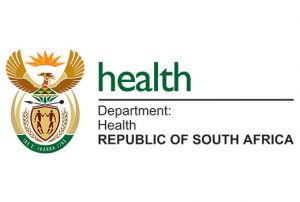Dr Tedros Adhanom Ghebreyesus to G20 8 July 2017:
It’s really a great privilege for me to be with you today to discuss the critical health threats facing our world today. And I thank you, Chancellor Merkel for your leadership in putting health on the G20 agenda and for the successful emergency simulation exercise which we have seen with health ministers in Berlin in May.
I think the exercise, as has been said, highlighted two major things among others: number one is that pandemics of infectious diseases and other threats to health, such as anti-microbial resistance, transcend borders and national interests, so vulnerability for one is vulnerability for all of us. And viruses actually do not know or do not respect borders.
And the second thing from the exercise that we found out is that we are not well prepared. That we are very often reactive rather than proactive. Therefore we require a strong global response- that we need to remain connected in our inter-connected world.
The reason we ask you to support global health is because we want to support you, you the leaders, to achieve your goals. Because pandemics, health emergencies and weak health systems not only cost lives but represent some of the greatest risks to the global economy and security that we face today. And we know what happened as has been said with Spanish flu in 1918: more than 50 million people died.
And the SARS outbreak cost the world economy around 60billion USD.
We have seen bird flu, MERS, Zika. Now. Cholera, Yellow Fever are back in force. WHO detects around 3000 signals a month but the world actually knows very few of them.
We do not know where the next global pandemic will occur, we don’t know when it will occur, but it will be costly in lives and dollars. With airline travel (3 billion travellers every year) global spread of any new pathogen would occur in hours. As well as untold human suffering, the economic losses would be measured in trillions, including the losses of tourism, trade, consumer confidence and also including political problems and challenges. There will be 2 epidemics – one caused by the virus, and the other one caused by fear.
During the Ebola outbreak of 2014 in West Africa, WHO and the global community had to confront a tough reality that had left the world unprepared-what Jim Kim, the President of the World Bank calls the cycle of panic and neglect. At the height of outbreaks, we are galvanized but we quickly lose focus. Our world cannot afford this
vicious cycle to continue.
The Ebola outbreak has also taught us another lesson. Our global system is only as strong as its weakest link. We must address the root causes of this problem: the lack of access of the most vulnerable people to health care, especially primary health care.
Universal health coverage and health security are the two sides of the same coin. This year, 400 million people, that is 1 out of 17, mostly poor people, women and children, around the world remain without access to health care. Strong health systems will not only be our best defence but will also be critical for attaining the SDGs.
So we propose 4 ways forward which we actually all know.
Number one is sustainably financing the global health security system to prevent, detect and respond to emerging threats, whether natural or man-made. Ensuring a guaranteed level of contingency financing for outbreaks and emergencies would be a great start.
And the second is mapping all the capacities we have can help us to move forward, mapping all capacities in countries and use them in a coordinated manner, based on their comparative advantage to strengthen preparedness.
And the third recommendation is to support the goal of Universal Health Coverage in line with the SDGs. This is the strategic solution actually, to prevent epidemics and provide quality care to our people by strengthening health systems of countries, especially in the most fragile and vulnerable parts of our world.
And number four, prioritize research and development of new medical counter-measures through the Research and Development Blueprint of the World Health Organization. WHO strongly supports the German proposal to establish the Global Collaboration Hub on Antimicrobial resistance research and development.
Delivering on these priorities will cost money but only a fraction of what remaining unprepared will cost.
WHO is prepared to fully play its leadership role. And together we need to take the responsibility of making the world a healthier and safer place. It’s possible and it’s in our hands.








